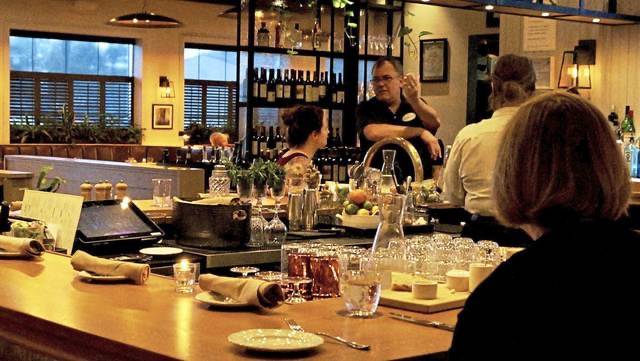Gov. Tom Wolf tried to give a gift to Pennsylvania bars and restaurants that serve alcohol last week.
In a Thursday announcement held at LeMont Restaurant on Mt. Washington, the governor proposed giving the businesses — many of which have faced struggles because of the social distancing and restrictions during the coronavirus pandemic — a break on one payment the state controls. He asked the Pennsylvania Liquor Control Board to waive licensing fees.
It’s a nice gesture. But in the scheme of things, it’s a token.
The move won’t save liquor license holders that much money. While the amount varies depending on the kind of license and the location of the business, the governor estimated the savings to the industry at about $20 million statewide.
That big number sounds impressive. Average it out across the more than 16,000 license holders, however, and you’ve got about $1,200 apiece. Nice, but not likely to afford much breathing room in the budget of a restaurant or bar trying to keep the doors open and the employees paid.
There are others that might notice that money, though.
Municipalities receive a portion of those licensing fees based on how many bars and restaurants are pouring drinks within their limits. Allegheny County alone pulled in $610,000 in just six months this year. More than half went to Pittsburgh. Monroeville got $14,750.
That might seem like just a sliver of a governmental budget, but the smaller the government, the bigger the slice. Maybe the state wouldn’t miss $351,000 here or there, but that money kicked back to Pittsburgh equals the entire budget of the Ethics Hearing Board — times two.
Community leaders say they would rather lose the money than lose the businesses, which would mean additional consequences for employees and families.
“Then we lose property taxes or earned income tax,” said Hempfield Manager Jason Winters.
That makes sense, and it’s good to have municipalities look at the big picture that way.
But it would be better for the state to look at what actually is affecting the restaurants and bars.
They aren’t suffering because they have to pay a fee for a license to sell their product. They are suffering because, in response to a deadly pandemic, the state has restricted their operations in myriad ways. On top of that, a lot of people just aren’t comfortable going out to eat and drink these days.
In his Thursday announcement, the governor was right to encourage state legislators to direct some of the $1 billion in CARES Act funds toward the hospitality and entertainment industry and take up proposals he made in August.
“Let’s not blame folks that do things that bring people together and make it easy for that virus to infect us,” Wolf said. “Let’s actually financially address the issues that restaurants face as a result of that reality.”
As ever, inconsistent messaging and inadequate communication from the state to the counties, the businesses and the people has been a problem. Even allowing for the shifting realities of this public health crisis, restaurant and bar owners justifiably have complained about shifting guidelines and enforcement.
So the gesture of waived LCB fees is nice, but it’s barely an hors d’oeuvre for an industry that has been walloped by the pandemic. The rest of Harrisburg should support real relief that will have a bigger impact.








